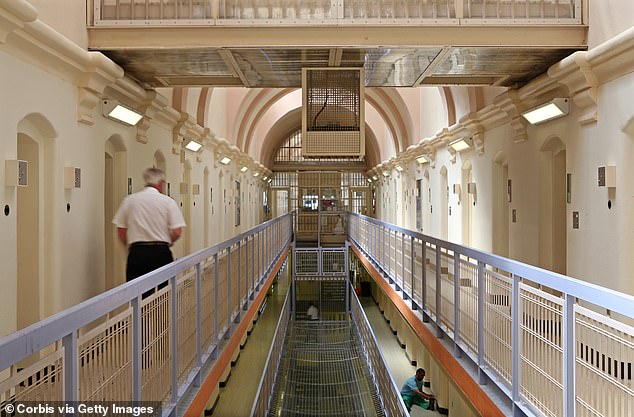Labour’s early release plan, which will see 5,500 prisoners released to free up space in overcrowded jails (1,700 of them now) is worse than chaotic.
It’s like using your credit card to pay off your overdraft.
The lack of capacity in British prisons is a serious problem, but doing so at a time of panic, without adequate planning or support for those being removed from prisons, is a recipe for more crime. The long-term result will be misery for innocent people and additional pressure on the justice system.
As is so often the case in the prison service, this indiscriminate approach benefits no one. Some prisoners will serve sentences that are already too long, while others should be locked up for much longer for the safety of the population. This lack of distinction will have serious consequences.
Chris Atkins says well-intentioned but naive schemes in prisons are exploited by hardened criminals with a strong incentive to manipulate the system.
When I was in Wandsworth prison, serving a five-year sentence for tax fraud, some of the men on my wing were considered so violent and so high-risk that they were never allowed out of their cells. There was a real danger that if they mixed with other prisoners in the exercise yard, someone would be stabbed.
But in many cases, they were not in prison for violent crimes. Typically, their crimes were drug-related. They were at the bottom of the drug-dealing ecosystem, and prison had educated them in violence.
They had one goal: to get out of prison, with the sole purpose of committing more crimes. There will surely be people like that among those who leave prison this week, because they are too common in the system and I have not seen anything being done to exclude them from the early release plan.
I used to hear the men talking about the crimes they were planning to commit, because they used my cell as a recreation room. There weren’t many places in the wing with a table and chairs, but since I was a “listener” or officially appointed counselor, my cell was comparatively spacious and had places to sit.
The idea was that anyone who had problems could come and see me and talk about them. Because I had a middle-class accent, I was supposed to be a source of wise advice. But the reality was that some of London’s leading merchants would stop by for a cup of tea while they worked out the details of their next shipment.
This is how prisons work: hardened criminals take advantage of well-intentioned but naive schemes that have a strong incentive to manipulate the system.
To make matters worse, there doesn’t seem to be any risk assessment effort before these random releases begin.
Leaked internal briefing documents show that some of the checks will take place after prisoners have been released.
That’s crazy.
It is as if the entire program has been designed to maximize the chances of recidivism. Many ex-convicts will not even have a place to stay when they are kicked out. That will inevitably fuel lower-level crime, as men shoplift, burglarize and perhaps assault vulnerable victims to get money to survive.
Under the parole system, prisoners can be released after serving half their sentence, so the one-year sentence will be reduced by 50 percent, with six months off as an incentive for good behavior.

Wandsworth Prison, where Chris served five years for tax fraud
Early release works by reducing the sentence by another 10 percent, so that people serve only 40 percent. But as I emphasize in my book Time After Time, that last 10 percent of the sentence is actually the most important.
This is when reintegration is planned, housing is arranged, prisoners apply for benefits and, hopefully, look for work. This is when they need to reconnect with their families, because all studies show that recidivism is more common among people who do not have the support of friends and family.
Everyone agrees, whatever their political persuasion, that our prisons are in crisis, with more than 88,500 men and women currently incarcerated in a dilapidated facility designed to accommodate a fraction of that number.
Punishment has its place, but prisoners also need to serve their sentences believing that they have the tools to change their lives. If they don’t, they will go out on the streets and commit more crimes, because they can’t imagine any other option.
And more crime, thanks to this insane early release policy, is what we are about to see.
- Time After Time: Repeat Offenders – The Inside Stories, by Chris Atkins, is published by Atlantic Books.

